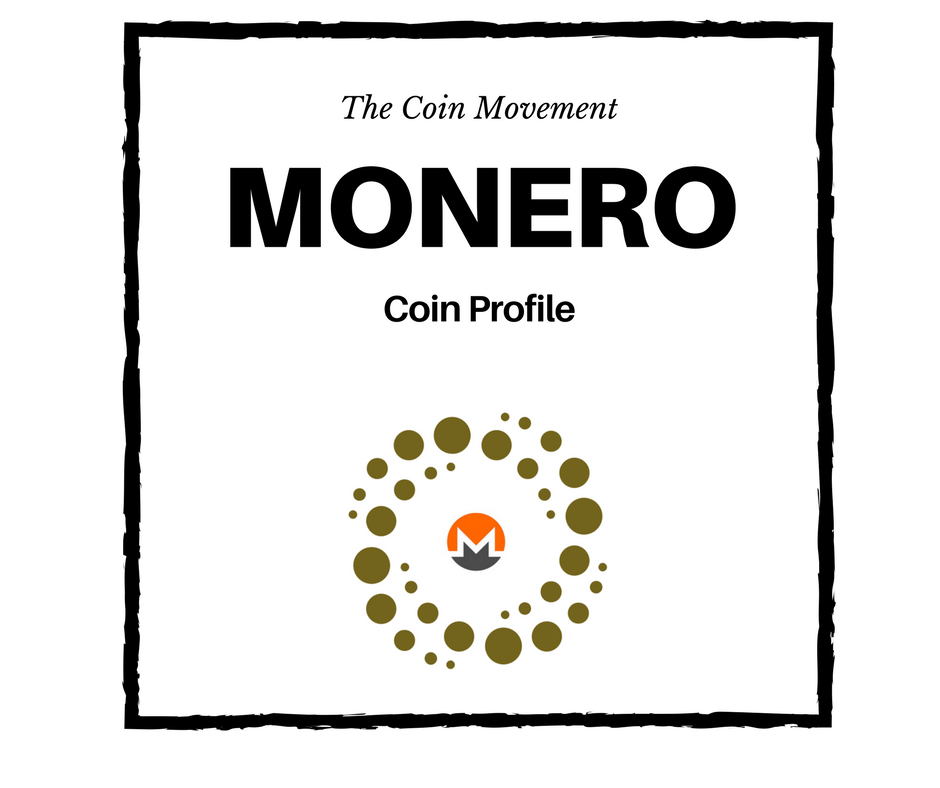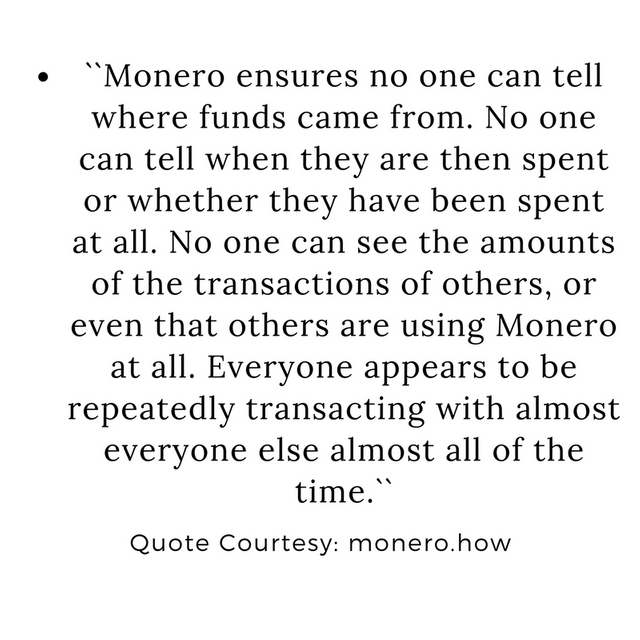Coin Profile: Monero (XMR)

What is it?
Monero (XMR) is a decentralized cryptocurrency that confirms transactions by distributed consensus and then records them on the blockchain. Sound pretty standard so far? Wait.
XMR has some differentiating features that make it appealing to certain user groups. The currency is untraceable, private and claims to be the only digital currency in use today that is truly fungible.
XMR Features
Untraceable
Unlike other major currencies like Bitcoin, your public address will never appear on the blockchain. XMR creates a one-time “Stealth Address” for every transaction which is set up in a way that only the recipient can recognize the incoming funds. Each receiver of funds has a secret view key that scans the blockchain and identifies if any recent transactions are meant for their wallet. This makes it virtually impossible, for an outsider looking in, to link a set of transactions to an individual address. The concept is known as unlinkability.
Privacy
Transaction mixing is enabled by the utilization of ring signatures to disguise the source of funds. That way, nobody can tell who has sent them the funds. There are other optional features being constantly added to enhance the layers of privacy. Mixin levels can be increased for certain transactions. Increasing mixin levels increases the number of possible senders of a certain transaction, diluting the identity of the sender even further than the standard protocol. A development called RingCT was introduced recently which hides the amount of funds been sent as well as the source who sent them. Project Kovri aims to use I2P nodes, to deter individuals from peeping into the network to view your activity. Invisible Internet Protection (I2P) serves the purpose of hiding Monero users’ altogether. Nobody monitoring the network can then distinguish a user as being a Monero user.
Fungibility
XMR claims to be the most fungible out of all cryptocurrencies. In order for a currency to be fungible, a single unit of the currency must equal the same as any other single unit of the currency. You'd reckon this was blatantly true for most currencies but, in fact, some can make the case as being more fungible than others. Here are two basic instances that make XMR more fungible than Bitcoin (BTC) and the USD:
BTC is traceable because the chain of transaction addresses are openly visible to anyone. If one of these addresses is identified in the future as being, for example, a source of drug revenue then the compromised or "tainted" Bitcoin could theoretically be confiscated from the end user address by higher powers.
Similarly, USD (along with many other fiat currency) bank notes have serial numbers which distinguishes them from each other. A bank may seize cash from you if, for example, a bank note is within a range of serial numbers that are flagged as stolen funds from a heist or robbery.

Anonymity will be an important quality for present and future digital currency holders. An individual or group can transact anonymously on the blockchain without the possibility of their volume or value of transactions being discovered. Companies and individuals do not wish for their bank balances to be revealed to, for example, a creditor looking for quick payment or a nosey neighbour curious as to why there is a new car in the driveway. This makes anonymous transacting very appealing. Monero can be placed in the “Anonymity Bucket” of cryptocurrencies along with numerous competitors such as Verge, Zcash and Zcoin.
XMR Origins
XMR IS constantly having new features added to enhance untraceability, privacy and fungibility. There are mandatory updates scheduled after every 6 months and there have been frequent hard forks that have gone by relatively smoothly. Most of the core developers wish to remain anonymous. There are two that have announced involvement publically - Francisco "ArticMine" Cabanas and Riccardo "Fluffypony" Spagni. You can discover the other 5 devs here. The Coin community have a strong presence and are very passionate and notoriously supportive.
The name "Monero" literally translates to "Currency" in Esperanto, a constructed international auxiliary language. It came about when the Bytecoin chain was code forked to create Bitmonero which eventually split off to Monero.
XMR Resources
There is so much to learn and explore with every cryptocurrency and I've really only just scratched the surface here with regards to XMR. The most reliable source for information comes directly from getmonero.org. Everything you need to know about XMR can be found on their official website. They also have a useful A-Z which explains the terminology behind Monero, on a technical level.
Monero.how is another fantastic resource for simplistic or advanced background to the inner mechanics of this cryptocurrency.
XMR is readily available to purchase with BTC or ETH on all major exchanges.
mymonero.com online wallet is a good place to get started if you'd like to store some XMR. The setup is very simple and user friendly.
Reddit and twitter, as always, are great ways to join in with the conversation and stay current with community events and developments.
Stay Tuned,
Cathal - The Coin Movement.
Disclaimer: The Coin Movement does not give out investment advice of any kind, only opinions…simple as!
Very good response.This post was outstanding.
Glad you found it beneficial :)